SOCIAL WORK ABROAD
Unafraid to explore, School of Social Work goes abroad in a big way
In a year of unprecedented travel in 2023, five faculty, eight students and a recent graduate from Virginia Commonwealth University School of Social Work renewed old connections, made new ones, fulfilled Covid-delayed plans and – most importantly – immersed themselves in local culture and knowledge.
Collectively, they traveled more than 45,000 miles to three continents and seven countries. Exploring and growing as educators, researchers and future social work practitioners, they embodied the unlimited opportunities and uncommon impact that characterize the School of Social Work.
“I feel like the students who went on the trip can be described as unafraid,” says Associate Professor Maurice Gattis, Ph.D., who led a weeklong study abroad in Cape Town, South Africa, where he was stationed for eight months as a Fulbright Fellow. “They flew more than 14 hours to spend their spring break studying LGBTQ+ issues at a time when there is backlash against the community. They engaged fully and very thoughtfully in a place that none of them had ever visited before.”
Here are the stories of our world travelers.
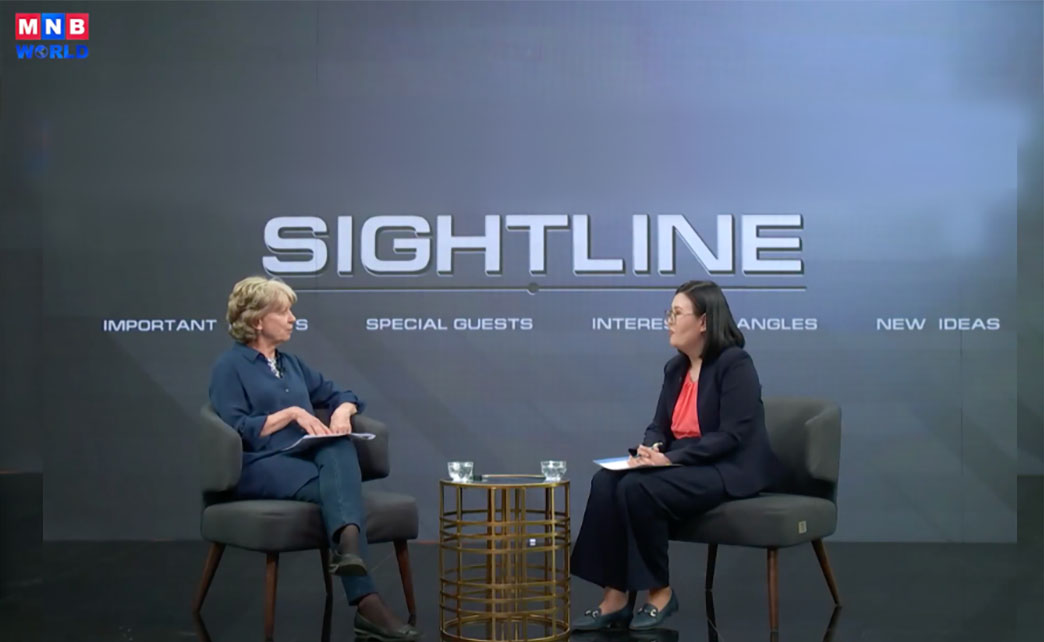
Denise Burnette, Ph.D.
Samuel S. Wurtzel Endowed Chair in Social Work
Mongolia: Fulbright Specialist
Dr. Burnette spent four weeks this summer as a Fulbright specialist at Mongolia National University of Medical Sciences (MNUMS), located in the capital city of Ulaanbaatar. She worked on the development and refinement of core competencies for its undergraduate program in health social work; delivered a series of capacity-building workshops for academic and community stakeholders on aging- and health-related issues; and provided mentorship to junior faculty and doctoral students.
The project renewed ties with colleagues in Mongolia dating to 2009 and represented her ninth visit there. “I was delighted when I discovered that they were seeking a Fulbright Specialist in health social work,” she says. “I was seeking a specialist opportunity that would afford me a relatively brief, focused opportunity to contribute to a project with discrete goals and objectives.

Faculty in the Health Social Work Department of the School of Public Health in Mongolia wear the traditional ‘deel’ to celebrate on graduation day.
“The experience reminded me, again, of how sustained relationships with people who share our concerns, goals and values help to shape individual character and collective responsibilities for our shared humanity.”
During her visit, Dr. Burnette also spent time with pastoralist communities in the steppes, where she stayed with colleagues in a ger, the traditional Mongolian residence made of a wooden frame covered with felt and canvas.
“My long-term engagement in Mongolia is a major high note in my professional career,” she says. “My collaborative relationships there have edified my work and fortified my commitment to improving the well-being of older adults in low-resource settings. In addition, they have deeply influenced my own personal growth and development.”
Dr. Burnette is exploring opportunities to establish a more formal connection between VCU and the MNUMS School of Public Health.
“Exposure to non-Western settings and cultures affords us access to untapped storehouses of knowledge from which we can learn how to improve our research, education and practice at home,” she says.
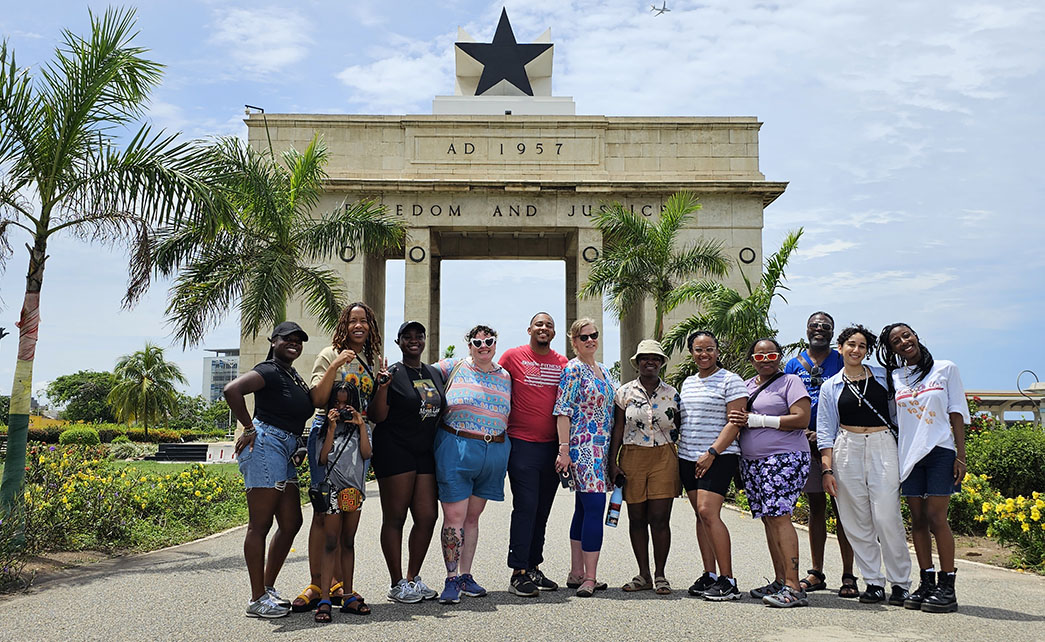
Nicole Corley, Ph.D.
Associate Professor
Ghana: Study abroad
Dr. Corley led 10 VCU students, five from social work, on a study of Ghana in June through the lens of art, culture and social justice. A visit to Ghana in 2021 sparked her interest, and the trip continued a school tradition of past study-abroad projects to the country.
“I thought it would be important to have students experience Ghana to help them connect their role as a social worker within a greater global context,” she says. “This trip allowed us to see and experience the impact of colonialism and how it restrains and obstructs traditional knowledge systems, values and practices. The journey of being culturally responsive and respectful requires that you critically examine your own understanding of the world and thoughtfully engage in cultures different than your own.”
Two M.S.W. students who made the trip felt strong connections with Ghana, one as a literal homeland and the other as an ancestral one.

Crossing the 1,000-foot-long canopy suspension bridge in Kakum National Park.
Sefa Gagble was born in Akatsi, Ghana, and migrated to the United States when she was 7, settling with her family in Charlottesville, Virginia. “Going back to Ghana is always such a wonderful and transformative experience,” she says. “I learn more about myself and my culture with every trip. Being in the U.S. – as diverse as it is – has never felt like home to me, so anytime I am able to, I seek out experiences that make me feel at home, grounded and at peace with myself.
“We speak a lot about cultural competence in social work but it can be difficult to see it in an actionable way. This trip and other experiences abroad shape a person's mind to be more mindful of others’ differences and to celebrate those differences.”
Samantha Cain, from Lancaster, Virginia, says that while she had no expectations about the trip, it overwhelmed all five senses. “I’ve never experienced freedom, peace, joy, love and care in such a manner. I don’t know if pure bliss defines it well enough.
“Africa is my home. It was a humbling honor to go to the places my ancestors were told they would never return. Being able to bathe myself in a river where my ancestors would have taken their last bath ushered me into a space to welcome my ancestors back to their home through me.
“This experience washed away my guilt and shame of not being born on African soil but still being what some would call African-American but I lovingly embrace as Black. The water embraced me and gave me the power I needed to know: Africa is my home.”
The trip also helped re-establish a historical link between Ghana and the VCU School of Social Work. “The school has a history of study-abroad opportunities for students,” Dr. Corley says. “Previous projects have included service-learning trips to Ghana that involved partnering with Sovereign Global Missions to build Grace Life International School. The current trip aimed to build on and reinvigorate pre-existing connections to Ghana while also creating new pathways for student (and faculty) learning and growth.”
This trip is less about traditional service learning and more so about students gaining a holistic understanding of Ghana and the richness of its cultural identity expressed through music, art and other cultural traditions.
Dr. Corley says her trip highlights included speaking with students and faculty at the University of Ghana and Kwame Nkrumah University of Science and Technology. These conversations included discussions on traditional African social support systems – the family, the community, elders and Queen Mothers – and the conceptualization of and indigenous localization of social work in Africa.
The group also engaged in a talk on social and environmental justice with advocates Nadia and Priscilla Owusu and a social/environmental enterprise called Mckingtorch Africa; a visit to the Kakum National Park and its dramatic 1,000-foot-long canopy suspension bridge; and participating in a traditional ceremony with the Queen Mothers (women leaders who play a powerful role in the community and politically) in the town of Adanwomase.
“This trip is less about traditional service learning and more so about students gaining a holistic understanding of Ghana and the richness of its cultural identity expressed through music, art and other cultural traditions,” Dr. Corley says. “Often our understanding of the world and what counts as knowledge is woefully limited and biased. This trip allowed us to see and experience the impact of colonialism and how it restrains and obstructs traditional knowledge systems, values and practices. This trip was transformative, as it opened our minds to consider social work from an African-centered lens. We learned new ways to think about what it means to be community-centered, community-led and community-engaged.
“Honestly, every day was memorable.”
⇨ Go deeper: Akwaaba – A journey abroad to Ghana
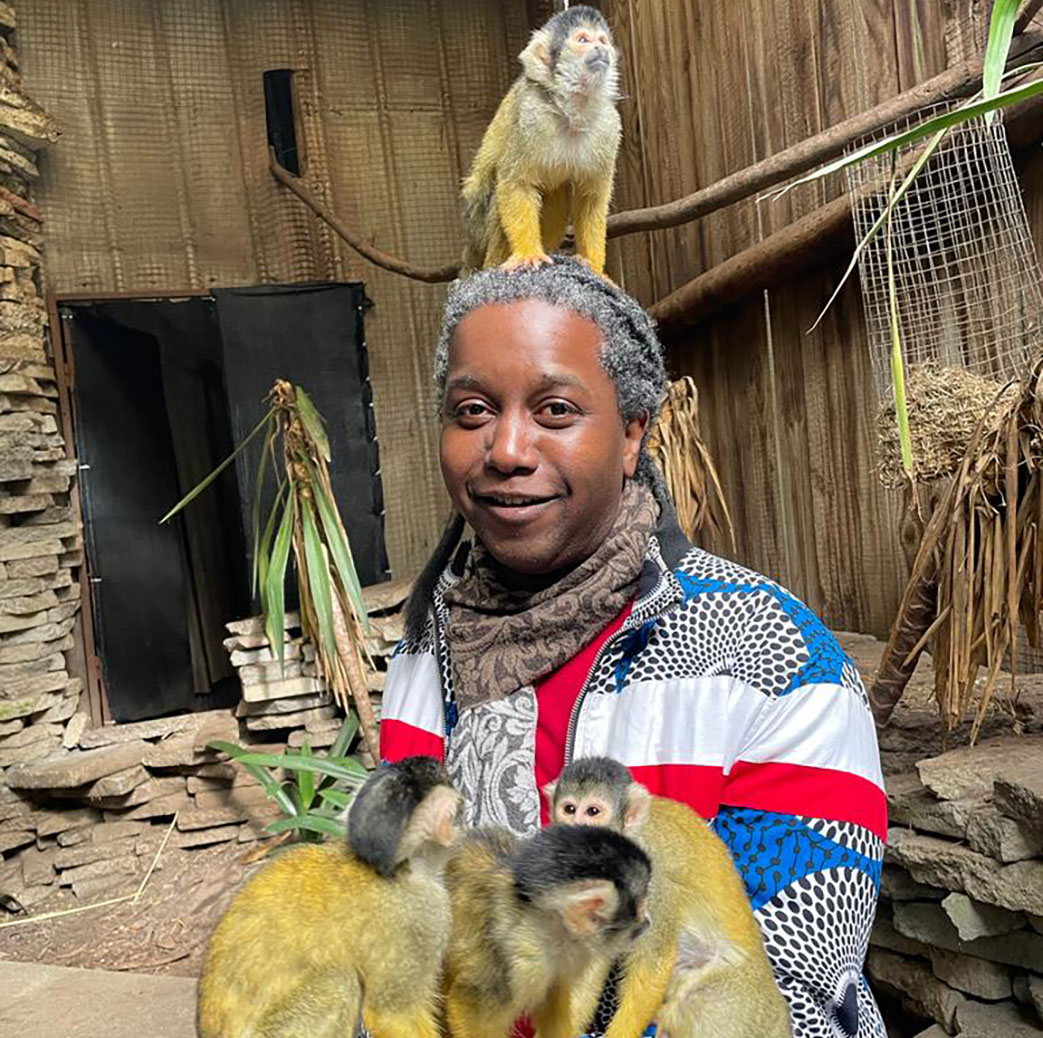
Maurice Gattis, Ph.D.
Associate Professor
South Africa: Fulbright Scholar
Covid-19 canceled a trip to South Africa in 2021, but Dr. Gattis earned a Fulbright, sponsored by the U.S. Department of State. From January-August 2023, he partnered with the University of Western Cape Department of Social Work and the local Pride Shelter Trust to study LGBTQIA+ youth and their experience in Cape Town and with the shelter.
“South Africa is the first country in the world to have protections for members of the LGBTQIA+ community in its constitution,” he says. “I thought it would be an interesting place to conduct research on how practice and lived experience work in a nation with protective policies.”
Dr. Gattis also led a study abroad trip for six VCU students, three from social work, along with Western Cape students. They explored LGBTQIA+ issues in post-colonial South Africa.
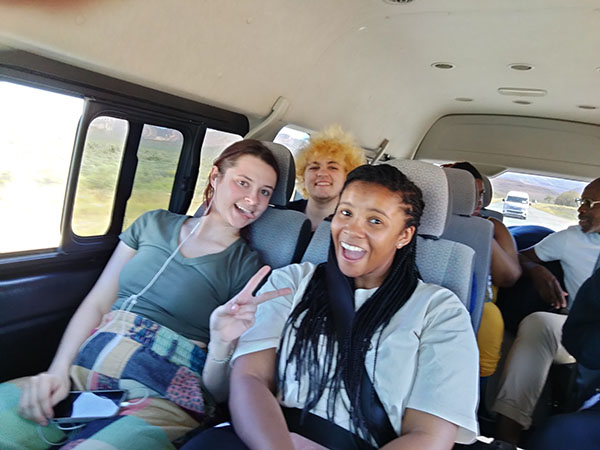
Michael Verner, a senior in the B.S.W. Program, was one of the VCU students on the trip. He had wanted to go to South Africa for a while.
“As a gay Black man living in the U.S. who is the descendant of enslaved Africans, I had the insatiable desire to step onto the land from which my people came. When I heard of Dr. Gattis' study abroad program that explored the intersectionality of queerness and Blackness in post-colonial South Africa, I knew it was kismet,” says Verner, who hopes to one day open an LGBTQIA+ inclusive nursing home/senior living facility.
During the trip, a tour guide asked Verner if it was his first time in South Africa. It was.
“With the warmest smile, he said, ‘Welcome home,’ ” Verner says. “Until that moment, I didn't realize how much I needed to hear those words. At the hotel later that evening, I cried when I replayed the day's events. Although I'm African American, I've never felt American. That day, I felt African, like I was indeed home.”
Social work Ph.D. candidate Aaron Kemmerer worked on the project from Richmond. He and Johan Fourie, a social work master’s student at Western Cape, presented preliminary findings at the Social Work and Sexuality Conference in Scotland in July. Two manuscripts have been accepted for publication in peer-reviewed South African journals.
“One of the key outcomes from the study was that there are unique strengths and challenges facing LGBTQIA+ youth experiencing homelessness and that specialized services in South Africa are attempting to address them, and it’s an ever-evolving process,” Dr. Gattis says.
He plans to use the experiences and findings to develop a more comprehensive study in Cape Town and to test interventions, and to inform his advising and consulting with the Cape Town shelter. He will also update curriculum for the LGBTQIA+ Individuals and Social Welfare course he teaches.
“Having an expanded worldview allows for a fusion of ideas that lead to innovation,” Dr. Gattis says of the experience. “I feel like every minute was memorable and stimulating.”
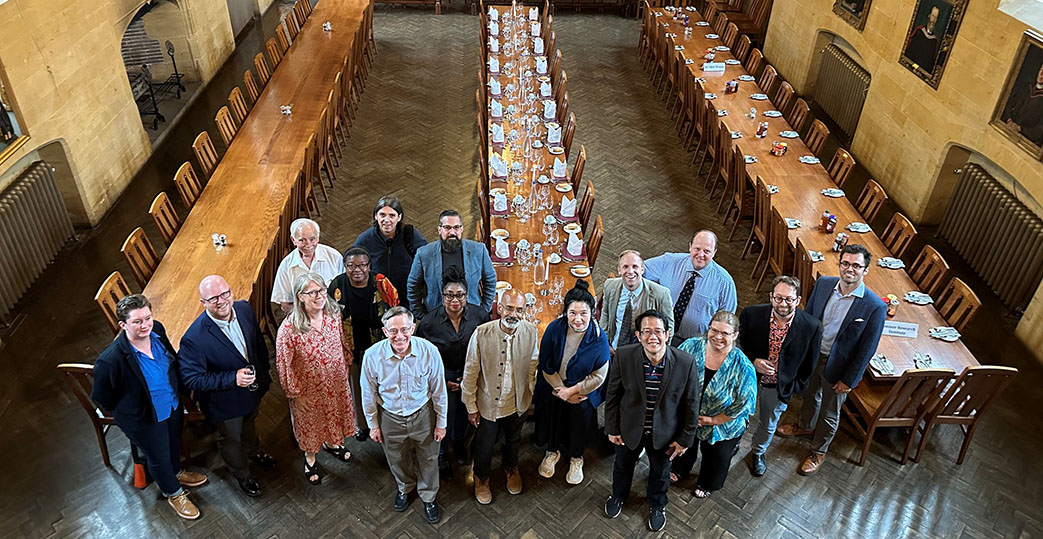
Hyojin Im, Ph.D.
Associate Professor
England: Harris Manchester Summer Research Institute, University of Oxford
Dr. Im’s ties to Oxford’s Refugee Studies Centre date to 2011, when she met its founder at a conference in Uganda. This summer she reconnected with the Centre, meeting new scholars, working to develop a new manuscript and sparking fresh insights for future funding proposals.
“I was particularly inspired by active scholarship and multinational research projects by the refugee-led research hub, with whom I'm exploring potential collaborations,” Dr. Im says. “We aim to examine the nexus between racial marginalization and the social integration of refugees/migrants, particularly through the lens of social capital.
“I've established connections with various international research groups, including refugee scholars from universities across different countries. Serendipitously, elements of my multi-year community-based participatory research projects in Eastleigh, Kenya, piqued the interest of scholars in East Africa and the U.K., who are leading voices in Intersectionality and climate justice.”
These partnerships hold the promise of enriching our research initiatives and community engagement efforts. Such collaborations are pivotal in expanding VCU's global reach, ensuring our community remains proactive in addressing the challenges faced by refugees and marginalized populations.
The connection culminated in a workshop presentation with multinational research groups, and is set to evolve into a research paper with her doctoral students. The research primarily focuses on the impacts of intersecting traumas endured by marginalized refugee groups in urban settlements, such as pre-displacement traumas, adversities during migration and the harsh socio-legal conditions encountered post-displacement. Dr. Im and her team are also preparing a series of manuscripts that delve into the intricacies of structural violence and its significant repercussions on the mental health and psychosocial well-being of refugees. Her study will also inform new grant proposals to enhance both domestic and international refugee protection and care systems.
“These partnerships hold the promise of enriching our research initiatives and community engagement efforts,” she says. “Such collaborations are pivotal in expanding VCU's global reach, ensuring our community remains proactive in addressing the challenges faced by refugees and marginalized populations.”
Dr. Im explored Oxford’s system of 100-plus libraries, including social and human sciences collection, which she terms “an intellectual treasure hunt. The sheer depth of the collections was exhilarating, and my stay seemed all too brief to fully appreciate this academic resource,” she says. “My time in Oxford was both invigorating and enlightening.”
She is also excited to infuse new content into the curriculum of the 700-level course International Social Work Practice, adding modules that delve into the historical contexts of migration, that emphasize the coloniality of racism and that offer comprehensive global perspectives on refugee/(im)migrant integration. “This approach aims to equip students with a holistic understanding, empowering them to navigate the complexities of these issues effectively in their academic and professional paths,” Dr. Im says.
Dr. Im has previously engaged with refugee communities and refugee-serving agencies at the Dadaab refugee camp in Kenya, as well as in urban refugee settlements in Nairobi and Kuala Lumpur. “As an international scholar and a ‘legal alien’ myself, I've always approached my work with a cross-cultural and multicultural lens,” she says. “For me, the allure of going abroad isn't just about gaining new experiences; it's about my responsibility to understand the intricate stories of the communities facing forced migration.”
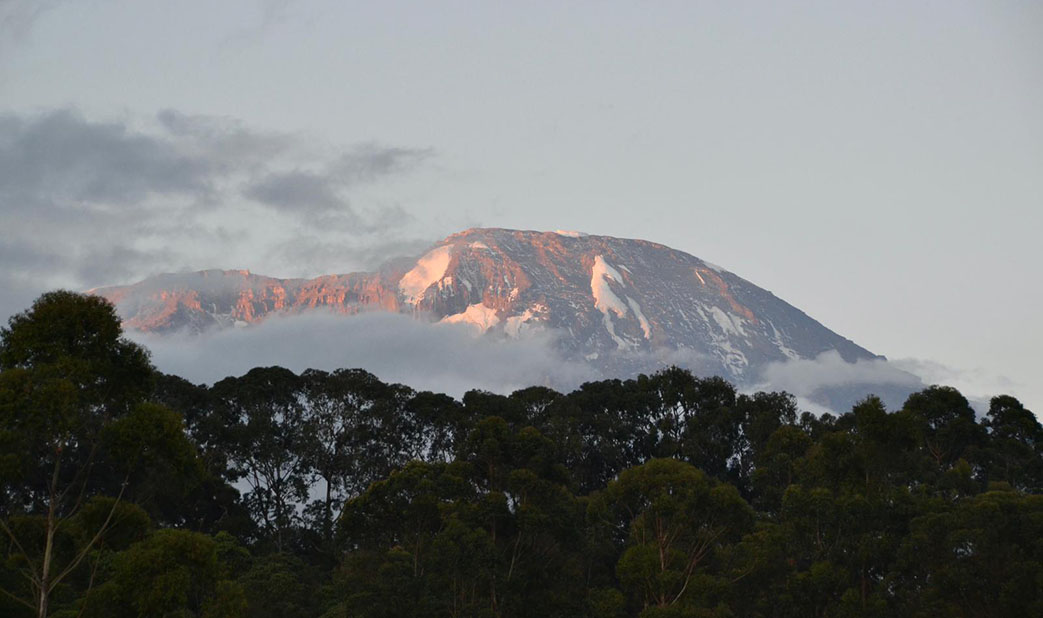
Oscar Kemp
2023 B.S.W. graduate
Tanzania: Critical Language Scholarship
Uganda: Fulbright Student English Teaching Assistant
Kemp’s interest in going abroad was sparked by a connection with a college roommate and his family who are Ghanaian. “I became interested in cultures that fixated on social harmony and respect,” Kemp says. “I realized language would prove useful in connecting with cultures where conversation is important.”
He won the first of two prestigious national awards, the Critical Language Scholarship, to learn Swahili in Tanzania from June-August 2023 – an opportunity to “immerse myself in a culture differing greatly from my own,” he says.
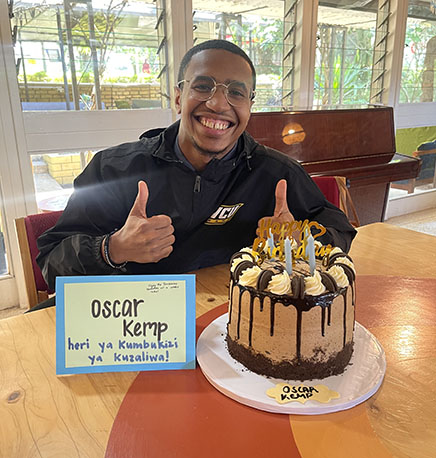
“My study abroad experience impacted my beliefs about environmental justice, job markets and education,” Kemp continues. “Tanzania treasures their land because it provides food, jobs and ways of life to the people of Tanzania. My host father was a farmer who taught me about farming methods used to facilitate the land’s harvest and benefit the environment. I met with young Tanzanians who recently graduated to discuss the availability of jobs in their respective sectors.”
A highlight from Tanzania was visiting the base of Mount Kilimanjaro in Machame, learning about the people of the Wachaga who live near the mountain, the tallest in Africa.
Kemp pursued the Fulbright opportunity “to globalize the skills I developed throughout my social work curriculum at VCU.” His appointment to Uganda – from September 2023-June 2024 and, like the CLS, awarded by the U.S. Department of State – is immersing him in another culture while improving his proficiency in Swahili.
Graduate school is in his future after his Fulbright experience ends.
“I will take these experiences and let them guide me to work with an organization that participates in good work driven by the values of social harmony, and respect for land and one another that I saw in Tanzania,” Kemp says. “I envision myself one day combining my social work and global citizenship experiences to pursue a law degree and public office.”
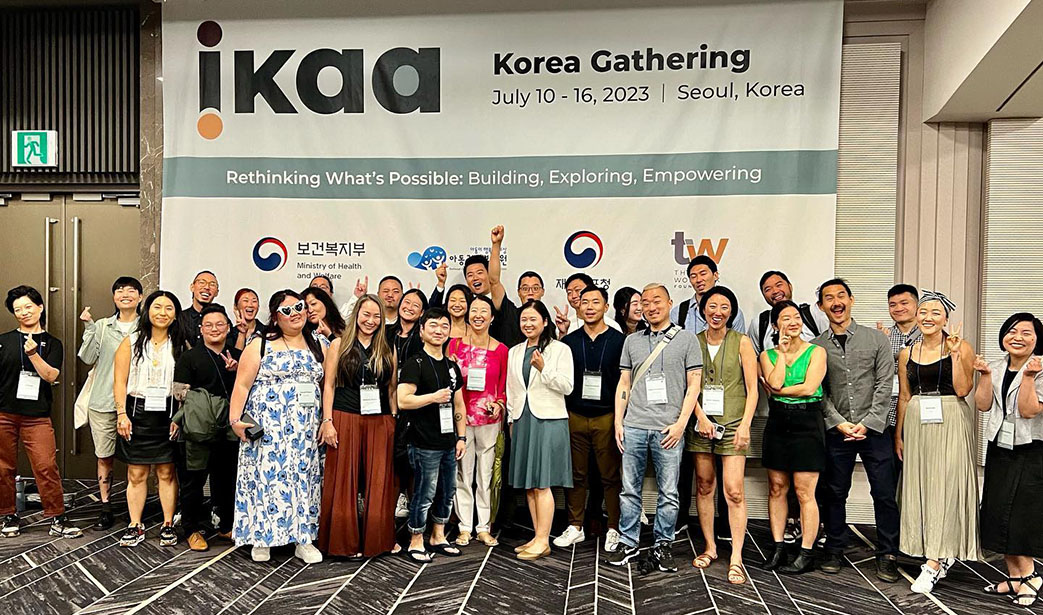
Hollee A. McGinnis, Ph.D.
Assistant Professor
South Korea: International Korean Adoptee Associations Korea Gathering
Twenty-four years after attending the first national gathering of first-generation Korean adoptees, Dr. McGinnis traveled to her birth country to participate in what has become a large international event.
She presented research findings and led a workshop this summer at the Sixth International Korean Adoption Studies Research Symposium in Seoul. She also experienced the mixed feelings that come with returning to a cultural home where she will “forever be an outsider and foreigner,” she says.
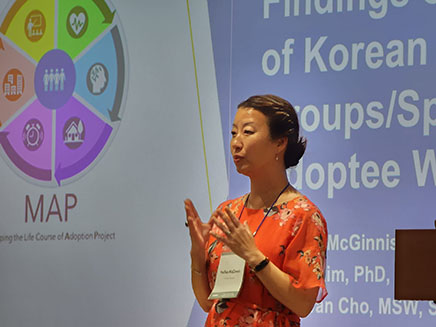
“As an international adoptee from South Korea, returning to my birth country is always bittersweet. I have been on a long journey since my 20s, of returning to the culture, language and food of the land where I was born but was not raised. Every time I get to return to South Korea, I feel like I am reclaiming a bit more of the life I could have had if I had not been adopted, and yet I will never have the lived experience of that life, either.”
Participating and sharing research is “imperative,” Dr. McGinnis says. The International Korean Adoptee Associations, which represents a global community of an estimated 230,000 overseas adopted Koreans, sponsored the conference. Dr. McGinnis’ research project, “Mapping the Life Course of Adoption,” is a VCU-funded, community-embedded study focused on adult outcomes and adoptee-led groups.
“Adoptees are not always thought of as a historically oppressed group, but when we think that the dominant norm of family is based on blood and genetics, you can understand how adopted people have to navigate these assumptions and are often left explicitly and implicitly as outsiders,” she says. “This is why I think connections and networks with peers who share a common lived experience or social group identity are so important: Being in community with others like you makes you feel less like an outsider and normalizes your experiences.”
Bringing her family this summer was critical to Dr. McGinnis. She previously spent over a year in South Korea with her husband and oldest son through a Fulbright Scholarship as a doctoral student. This latest trip allowed her youngest son to experience his heritage, too.
“I think we often think of heritage as being something that exists in the past, but traveling to our ancestral land is a way to remind my children that their heritage is present, alive and in this moment – and they can be a part of it!” she says. “Also, as Asian-Americans I think it is important for my children to have an experience of being in the racial majority and also experience a place that is more racially homogeneous (than) the United States, which is racially diverse.”
Dr. McGinnis’ roots in the Korean adoptee community run deep – she founded the adoptee-led, international organization Also-Known-As in 1996 in New York City.
“I have always been interested in the power of connections and our social relationships, especially the power of community to help historically marginalized people,” she says. “I was able to witness and benefit from having a community of international adoptees in my 20s when I started Also-Known-As. Whenever I am in these adoptee-led spaces – even to this day – I hear the same thing from adoptees: ‘I finally feel like I have a place where I feel I can belong.’ ”
Other international connections

South Korean academic visitors
The group, from departments of sociology and social welfare, met with VCU associate professors Youngmi Kim, Ph.D., and Traci Wike, Ph.D., (pictured, center) about LGBTQIA+ youth; and with Kyeongmo Kim, Ph.D., associate professor, and Denise Burnett, Ph.D., Wurtzel Endowed Faculty Chair in Social Work, about diversity of older adults in the U.S. The group also visited NAMI (National Alliance on Mental Illness) Virginia, and they later traveled to Washington, D.C., Baltimore, New York City and Connecticut.
- Matthew Bogenschutz, Ph.D., associate professor
Dr. Bogenschutz has conducted and published extensive research around disability rights in Vietnam, and served as an adviser and trainer with Children of Vietnam. - Youngmi Kim, Ph.D., associate professor
Dr. Kim has conducted and published extensive research on South Korean populations and their intersection with adverse childhood experiences and food insecurity, and she currently serves as a consultant with a National Research Foundation of Korea-funded study. - Miriam Kuttikat, Ph.D., associate professor
Dr. Kuttikat is director of the Community Engaged Migrant Health Research lab at VCU and member of Richmond Refugee Dialogue. Her work includes an extensive focus around Sri Lankan Tamil refugees.
